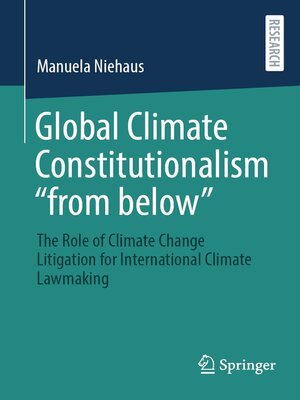Global Climate Constitutionalism "from below"
ebook ∣ The Role of Climate Change Litigation for International Climate Lawmaking
By Manuela Niehaus

Sign up to save your library
With an OverDrive account, you can save your favorite libraries for at-a-glance information about availability. Find out more about OverDrive accounts.
Find this title in Libby, the library reading app by OverDrive.



Search for a digital library with this title
Title found at these libraries:
| Loading... |
Global climate constitutionalism is seen as a possible legal answer to the social and political unwillingness of states to effectively tackle climate change as a global problem. The constitutionalisation of international climate law is supposed to ensure greater participation of non-state actors such as NGOs or individuals and a rollback of state sovereignty where states do not care about meeting their climate commitments. This book addresses the question of whether non-state actors such as NGOs or individuals create international climate law through so-called climate change litigation. Against the background of Peter Häberle's theory of the "open society of constitutional interpreters", four selected cases (Urgenda v Netherlands, Leghari v Pakistan, Juliana v United States of America, Future Generations v Colombia) are used to examine how actors not formally recognized as subjects of international law (re)interpret national and international law and thereby contribute to the constitutionalisation of the international climate law regime.






